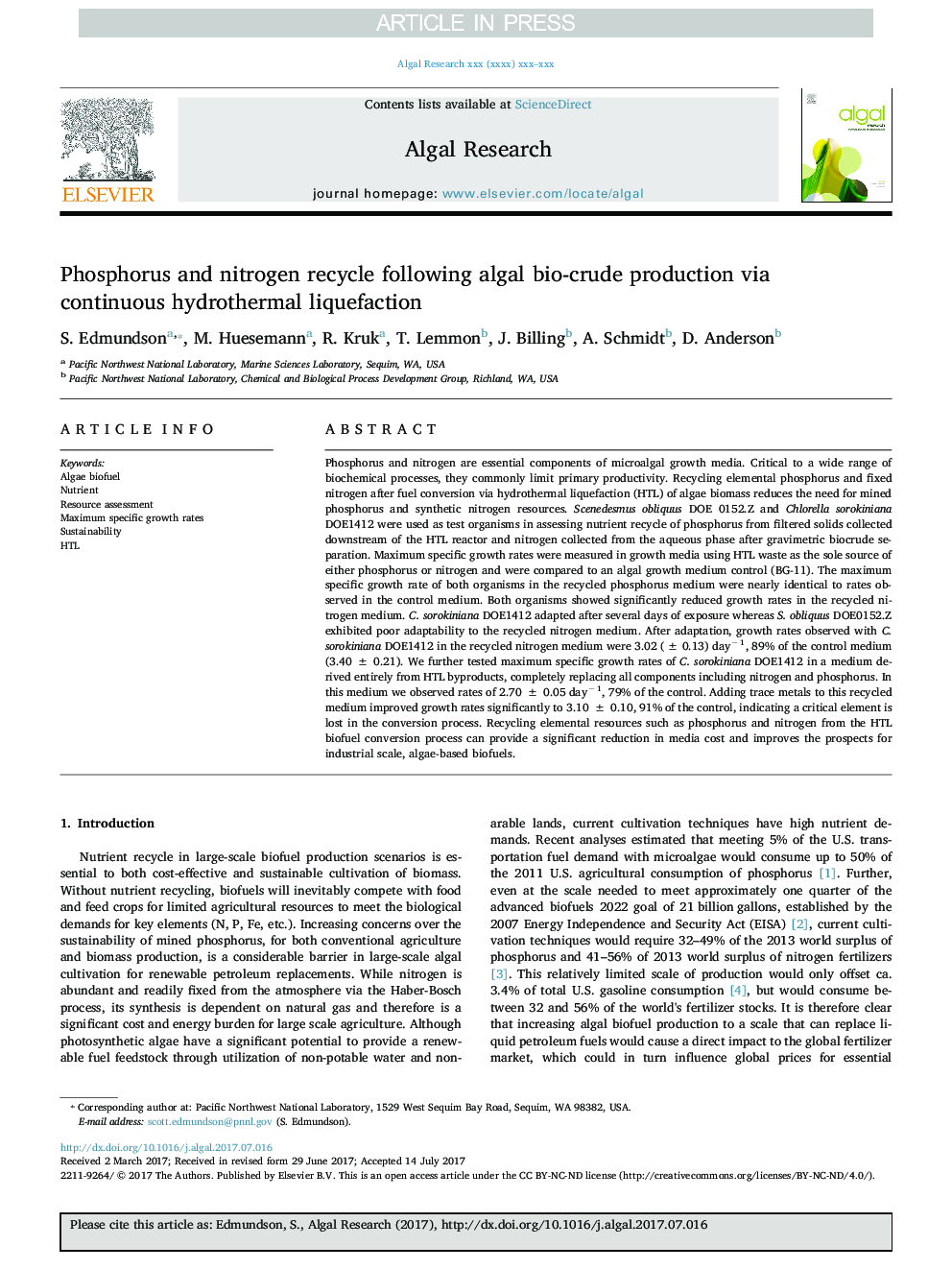| Article ID | Journal | Published Year | Pages | File Type |
|---|---|---|---|---|
| 5478309 | Algal Research | 2017 | 7 Pages |
Abstract
Phosphorus and nitrogen are essential components of microalgal growth media. Critical to a wide range of biochemical processes, they commonly limit primary productivity. Recycling elemental phosphorus and fixed nitrogen after fuel conversion via hydrothermal liquefaction (HTL) of algae biomass reduces the need for mined phosphorus and synthetic nitrogen resources. Scenedesmus obliquus DOE 0152.Z and Chlorella sorokiniana DOE1412 were used as test organisms in assessing nutrient recycle of phosphorus from filtered solids collected downstream of the HTL reactor and nitrogen collected from the aqueous phase after gravimetric biocrude separation. Maximum specific growth rates were measured in growth media using HTL waste as the sole source of either phosphorus or nitrogen and were compared to an algal growth medium control (BG-11). The maximum specific growth rate of both organisms in the recycled phosphorus medium were nearly identical to rates observed in the control medium. Both organisms showed significantly reduced growth rates in the recycled nitrogen medium. C. sorokiniana DOE1412 adapted after several days of exposure whereas S. obliquus DOE0152.Z exhibited poor adaptability to the recycled nitrogen medium. After adaptation, growth rates observed with C. sorokiniana DOE1412 in the recycled nitrogen medium were 3.02 (± 0.13) dayâ 1, 89% of the control medium (3.40 ± 0.21). We further tested maximum specific growth rates of C. sorokiniana DOE1412 in a medium derived entirely from HTL byproducts, completely replacing all components including nitrogen and phosphorus. In this medium we observed rates of 2.70 ± 0.05 dayâ 1, 79% of the control. Adding trace metals to this recycled medium improved growth rates significantly to 3.10 ± 0.10, 91% of the control, indicating a critical element is lost in the conversion process. Recycling elemental resources such as phosphorus and nitrogen from the HTL biofuel conversion process can provide a significant reduction in media cost and improves the prospects for industrial scale, algae-based biofuels.
Related Topics
Physical Sciences and Engineering
Energy
Renewable Energy, Sustainability and the Environment
Authors
S. Edmundson, M. Huesemann, R. Kruk, T. Lemmon, J. Billing, A. Schmidt, D. Anderson,
